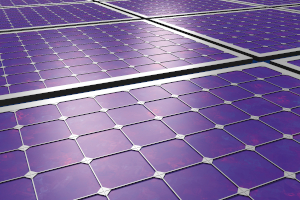Solar Voltaics

Solar voltaics, a cornerstone of renewable energy, are transforming the way we harness the sun’s power.
As demand for more efficient and durable solar panels grows, the importance of advanced materials analysis in the development of photovoltaic layers cannot be overstated. At Hiden Analytical, we provide state-of-the-art technologies that are pivotal in enabling breakthroughs in solar cell efficiency and longevity, including both Secondary Ion Mass Spectrometry (SIMS) and Thermal Desorption Spectrometry (TDS).
Related Products
SIMS Technology for Photovoltaic Analysis
Our SIMS range, including the cutting-edge SIMS workstation and the FIB-SIMS system, stands at the forefront of photovoltaic research and development. These tools offer unparalleled insights into the composition and structure of photovoltaic materials, paving the way for enhanced solar cell performance.
SIMS Workstation: A Core Tool for Photovoltaic Analysis
The SIMS workstation is designed for comprehensive analysis of photovoltaic layers, providing essential data on material composition and impurity distribution. Its precision allows researchers to optimise the fabrication processes of solar cells, ensuring maximum efficiency and performance.
FIB-SIMS System: Advanced Imaging for Solar Materials
Our FIB-SIMS system combines focused ion beam (FIB) technology with SIMS analysis, offering high-resolution SIMS imaging and depth profiling of photovoltaic materials. This system is crucial for understanding the microstructural properties that influence solar cell behaviour and efficiency.
TDSLab Series for Photovoltaic Research
The TDSLab Series brings advanced thermal desorption spectrometry to the forefront of photovoltaic research. These systems enable comprehensive analysis of material properties, crucial for optimizing photovoltaic cell efficiency and durability.
Applications in Solar Voltaics Research:
- Material Purity and Composition: Identifying and quantifying impurities in photovoltaic materials to enhance cell efficiency.
- Layer Thickness and Uniformity: Providing accurate measurements and insights to optimize deposition processes.
- Desorption Studies: Understanding the desorption properties of photovoltaic layers to improve material stability and performance.
- Gas Analysis: Analysing gases desorbed from photovoltaic materials to optimize manufacturing processes and material selection.
Why SIMS and TDS Analysis are Indispensable for Solar Energy Progress
The depth of information provided by SIMS and TDS analyses is unparalleled, offering a detailed understanding of photovoltaic materials at the atomic and molecular levels. These insights are crucial for pushing the boundaries of solar cell efficiency, making solar energy more accessible and impactful worldwide.

